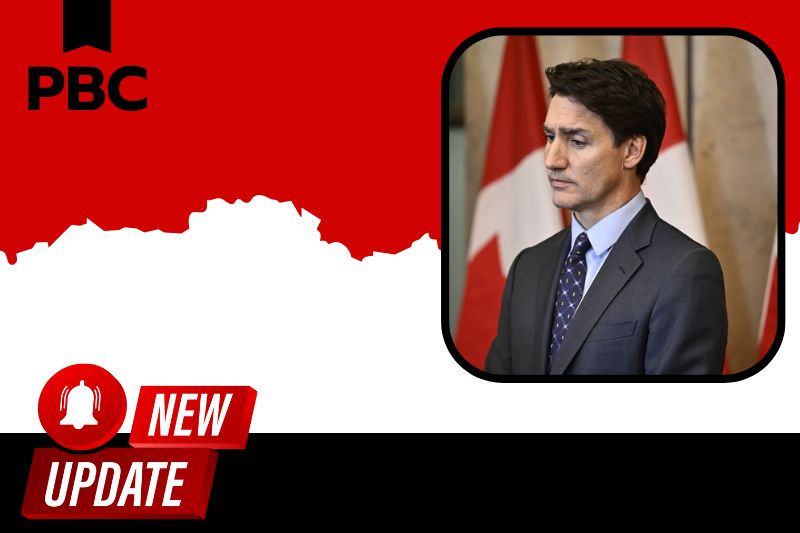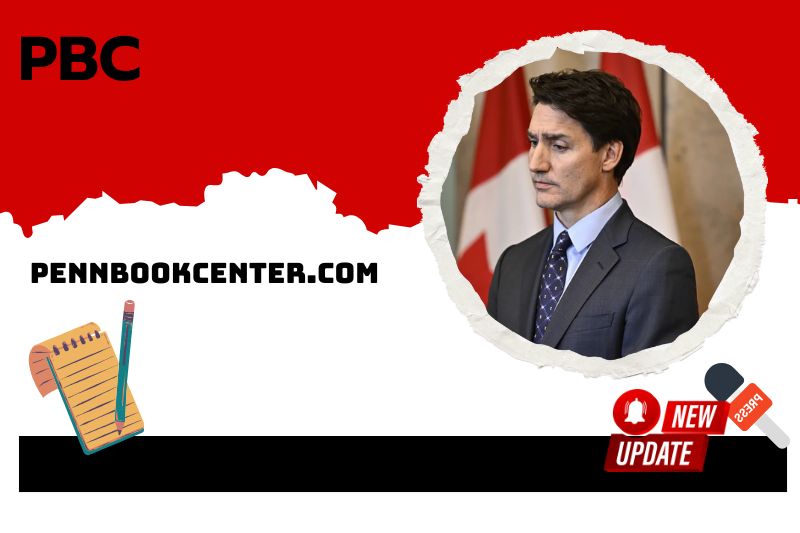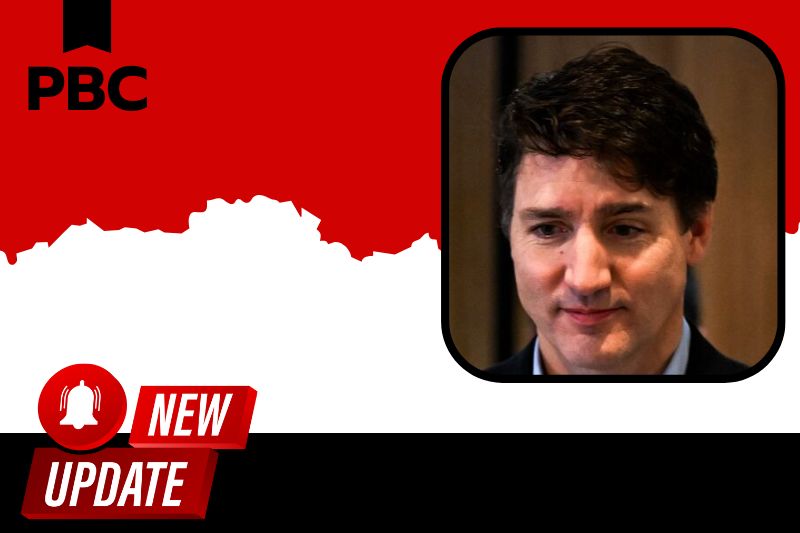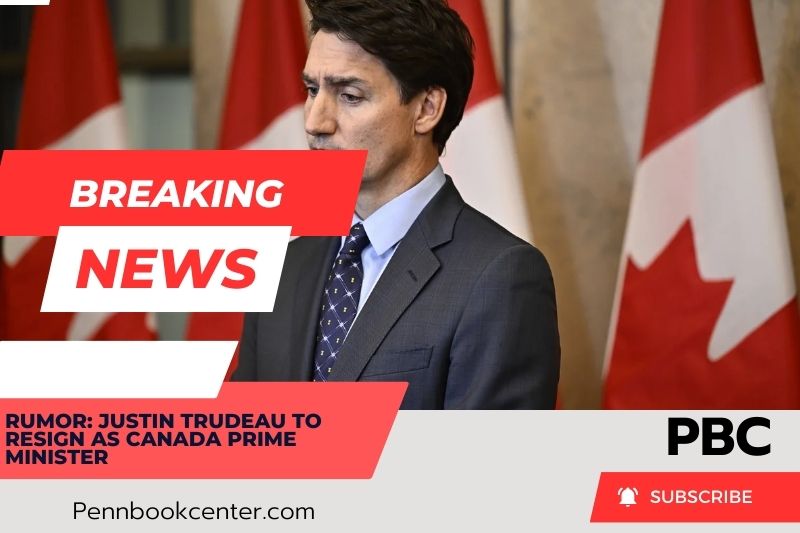Rumors surrounding Justin Trudeau’s potential resignation as Canada’s prime minister have dominated political discussions.
As speculation grows, many are wondering what led to this crisis. From Chrystia Freeland’s resignation to Trudeau’s declining approval ratings, the future of Canadian politics is uncertain.
This article delves into why these rumors are surfacing and what could follow if Trudeau steps down.
Why Are There Rumors That Justin Trudeau Will Resign as Canada’s Prime Minister?

The rumor that Justin Trudeau will resign as Canada’s Prime Minister has been circulating for several weeks, and the speculation continues to build.
This is largely due to a combination of internal Liberal Party struggles, growing dissatisfaction with his leadership, and recent events shaking his administration.
According to a report by Polymarket, there is an 80% chance that Trudeau will step down before April.
One of the main triggers for this unrest has been Chrystia Freeland’s resignation as Canada’s Deputy Prime Minister and Finance Minister.
Her decision to leave the Cabinet highlighted deep divisions within the Liberal Party and further fueled the narrative that Trudeau’s leadership is in jeopardy.
In her resignation letter, Freeland pointed out the irreconcilable differences she had with Trudeau over policy and governance, describing his actions as costly political gimmicks rather than focused on the nation’s economic challenges.
Internal Party Struggles and Declining Popularity
Trudeau’s leadership is under intense scrutiny as his popularity plummets. Recent national polls show a 20-point gap between the Liberals and the Conservatives, led by Pierre Poilievre, who has heavily criticized Trudeau’s handling of the government.
Poilievre has called Trudeau’s leadership out of control, which has resonated with many frustrated Canadians. This is part of a broader issue where Trudeau’s decisions have come under fire from multiple fronts, including policy direction, leadership style, and internal party friction.
What Led to Chrystia Freeland’s Resignation and Its Effect on Trudeau?
Chrystia Freeland’s resignation marked a significant moment in Trudeau’s tenure as Prime Minister. Freeland, who was once seen as one of his most trusted allies, decided to step down, citing irreconcilable differences with Trudeau.
She revealed that Trudeau had discussed replacing her and offered her a different Cabinet position, which she declined. In her resignation letter, Freeland sharply criticized the Prime Minister’s handling of Canada’s economic challenges and accused him of engaging in political gimmicks for personal benefit.
This move was not only a blow to Trudeau’s leadership but also a symbol of the increasing turmoil within the Liberal Party. Freeland’s resignation has made it more difficult for Trudeau to continue as Prime Minister, especially with Liberal MPs calling for a reevaluation of leadership.
What Is Prorogation, and How Could It Be Used by Trudeau?
In the face of growing political instability, prorogation is one option Trudeau could use to navigate this crisis. Prorogation refers to the formal suspension of Parliament, effectively “resetting” the legislative proceedings.
It halts all bills and committee activities until a new session begins. While prorogation can be used as a tool to refocus government priorities, it is also a potential political strategy that could buy Trudeau some time during this leadership crisis.
However, using prorogation is a double-edged sword. It might provide temporary relief, but it could also alienate the public and further undermine his credibility. As of now, Trudeau is reportedly weighing this option alongside the possibility of resigning outright.
How Have Other Canadian Politicians Reacted to Trudeau’s Leadership?
Politicians across Canada have expressed a variety of reactions to Trudeau’s leadership crisis. On the one hand, Pierre Poilievre, the Conservative leader, has consistently criticized Trudeau, calling his leadership out of control.
Poilievre’s remarks have resonated with many Canadians who are dissatisfied with the current state of the country’s governance.
Meanwhile, Jagmeet Singh, leader of the New Democratic Party (NDP), has been more direct, openly calling for Trudeau to resign. His comments reflect the growing dissatisfaction among other political factions, as well as within the Liberal Party itself.
What Are the Likely Outcomes If Trudeau Resigns as Prime Minister?

If Trudeau steps down, there will be immediate consequences, not just for the Liberal Party but for Canadian politics as a whole. One potential outcome is the rise of a new leader within the Liberal Party.
There are several figures who could step into the role, but the party will have to move quickly to stabilize itself and regain the confidence of the electorate.
The impact of Trudeau’s resignation would likely reverberate beyond politics. It could lead to significant changes in Canada’s policies and how the nation is governed in the coming years. Economic issues, especially the fallout from Freeland’s departure, would also be on the agenda.
What Does This Mean for the Future of the Liberal Party?
If Trudeau resigns, the Liberal Party faces a crucial moment. With the internal divisions laid bare, it will need to rebuild its public image and unify its members to face upcoming elections. A new leader will need to address both policy misalignments within the party and public perception.
This process of rebuilding may take years, but it is essential for the survival of the Liberal Party in its current form. Whether Trudeau stays or leaves, the future of the party is on the line, with numerous questions about its direction in both domestic and international politics.
The Political and Economic Impact of Trudeau’s Potential Resignation
A resignation would create immediate political turmoil in Canada. Trudeau’s leadership has already faced criticism for its handling of the economy, foreign relations, and domestic policies.
Short-term consequences might include confusion over who will take the helm of the Liberal Party and what policies will guide the country moving forward.
In the long-term, Canada may experience shifts in economic strategy and international relationships. Key decisions regarding trade, taxation, and economic recovery will be left to whoever succeeds Trudeau.
The global stage will be watching closely, especially in relation to U.S.-Canada relations.
What Has Trudeau Said About His Leadership and Future Plans?

To date, Trudeau has not made any definitive public statements about his potential resignation.
However, sources close to the Prime Minister suggest that he is carefully considering his options. CTV News reports that an announcement might be imminent, with Trudeau expected to either resign or announce a prorogation in the coming days.
As the pressure mounts, Trudeau is facing increasing calls from within his own party to address the growing crisis.
Is Justin Trudeau’s Leadership Really in Crisis?
It’s clear that Trudeau’s leadership is under intense scrutiny. From his approval ratings to Freeland’s resignation, the signs of leadership strain are evident.
This crisis is not only about internal party disputes but also about how the Prime Minister’s decisions have affected the Canadian public.
Trudeau’s future remains uncertain, and the next few weeks will be critical in determining whether he can overcome this turmoil or be forced to step aside.
Check out his net worth to learn more information about his wealth and income.
Conclusion
The rumors surrounding Justin Trudeau’s resignation are causing significant waves in Canadian politics. The outcome will have lasting implications for the Liberal Party and the nation as a whole.
Feel free to share your thoughts, leave a comment, or explore more Celebrity News articles on Pennbookcenter.




